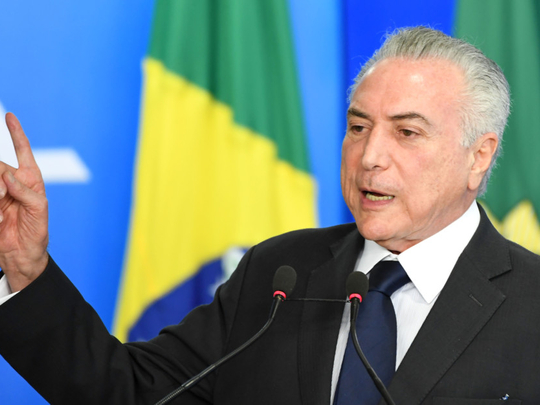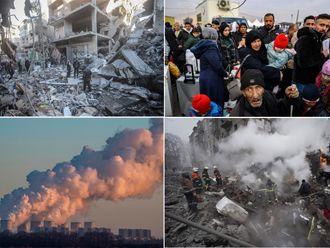
Earlier this year, bandits struck on an unpoliced stretch of a highway in the outskirts of Rio de Janeiro. Riding in a convoy and carrying assault weapons, they flagged down a driver and closed in for their prize: A truckload of cigarettes. Armed guards in a follow car opened fire, but they didn’t stand a chance. Two were fatally shot and one critically wounded in the fusillade; police investigators counted 20 bullet holes in the escort vehicle.
Forget Blackbeard and the Amazon River pirates. Some of the most fearsome and efficient new-world predators these days navigate the asphalt. For Souza Cruz, Brazil’s biggest tobacco company, truck-jackings like the one in May have become a harrowing routine: Heists by ever more brazen gangs in Rio de Janeiro state surged 127 per cent since 2012, the company reported, and there were 300 separate attacks in Sao Paulo state last year alone.
Latin American criminals have long been an industrious lot, of course. That’s one reason why the region leads the world in homicides and shells out double the average amount developed countries spend due to crime and violence. If frail institutions and a porous justice system are known to have conspired to keep urban outlaws in business, the mayhem beyond the city limits has drawn less attention.
And given that most Latin American nations are ribboned by highways and their consumer markets beholden to overland transport for everything from soybeans to beverages, that is a critical blind spot. Such supply routes have become a breeding ground for a new class of buccaneers.
Plagued by drug cartels, Mexico’s roadways have become fair game for criminal gangs, whose daring assaults reportedly increased 60 per cent last year, disrupting the country’s oil pipelines and supply chains. And while Mexico’s cargo fleet is only a tenth the size of America’s, in 2015, the country’s truckers suffered 30 per cent more attacks than their counterparts north of the border, according to a freight industry analysis.
No country was considered riskier than Brazil, though, where estimated losses to cargo pirates are expected to reach $1.3 billion (Dh4.78 billion) this year. The crime spike closely dovetails the country’s fiscal debacle — plunging tax revenues combined with years of overspending on bloated bureaucracy, which has forced federal and local governments to slash public services, including policing.
Jim Yarbrough, BSI’s director of intelligence who advises transportation companies, agreed. “There’re only half a dozen countries in the world that compare with Brazil,” he said in an interview. “You have a perfect storm of highly organised criminal networks, high-value goods like alcohol and medicine, but very poor infrastructure [and] government control and high levels of corruption.” Yarbrough said BSI’s clients who used to spend around 5 per cent of their budget on security now shell out up to 20 per cent, due largely to the soaring insurance premiums.
The rash of highway assaults was key to Brazil President Michel Temer’s recent order for federal troops to extend their stay in Rio through next year. However, stopping highway robbers will take more than moonlighting ringers.
Just ask Roberto Mira. A veteran trucker and currently the vice-president of NTC & Logistica, a Brazilian cargo transportation industry lobby, Mira lost a truck a few years back to Rio hijackers, who drove it straight to a slum ruled by drug lords. “The police told me there was nothing they could do because the area was very dangerous,” Mira told me. It took him six months and his own rescue team to retrieve the stolen vehicle — empty, of course.
— Bloomberg
Mac Margolis writes about Latin America for Bloomberg View. He is the author of The Last New World: The Conquest of the Amazon Frontier.



_resources1_16a45059ca3_small.jpg)




